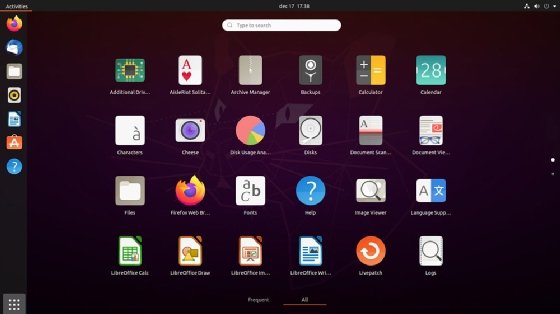GNU/Linux
What is GNU/Linux?
GNU/Linux is a Unix-like operating system made up of different OS components and services that create the Linux OS.
GNU stands for GNU's not Unix, which makes the term a recursive acronym, or an acronym in which one of the letters stands for the acronym itself. The GNU Project initially created most of the components and services used in GNU/Linux and later added the Linux kernel to create the GNU/Linux OS. The Linux kernel is the core component of GNU/Linux, as it provides basic services and allocates OS resources.
GNU/Linux is not one organization's product, as several organizations and individuals contribute to it. The OS comes with source code that can be copied, modified and redistributed. GNU/Linux also branches off into many different software packages, called distributions. Distributions change the appearance and function of GNU/Linux, making it an especially flexible OS.
Although there are numerous distributions, Debian, Fedora and Ubuntu are three user-friendly examples of GNU/Linux desktop distributions.
Debian was developed by the community-supported Debian Project and is one of the oldest OSes based around the Linux kernel. It is developed openly and distributed following the principles of the GNU Project. The Free Software Foundation (FSF) sponsored Debian between 1994 and 1995.
Fedora was developed by the Fedora Project and is sponsored by Red Hat Inc. Its goal is to lead in open source technologies by focusing on integrating new technologies and working closely with Linux-based communities.
The Ubuntu OS, which is based on the Debian Linux distribution, is composed of free and open source software. Ubuntu is an OS typically used for cloud computing and is supported by OpenStack.

Free software movement activist and programmer Richard Stallman announced the GNU/Linux project and, with others, formed FSF in 1985.
How is GNU/Linux used?
GNU/Linux is not much different from Microsoft Windows. Commercial-quality software is available for users to work with, with additional free, high-quality applications users can find and install.
The original purpose of the GNU Project was to create a free OS. Free -- not in the context of cost -- but in terms of giving users the freedom to run, copy, distribute, study, change and improve the software as needed. As such, individuals can change the OS and exchange its components however they want. The Linux community participates in the development and improvement of the OS.
Software developers profit by selling support and services around their own GNU/Linux distribution. Corporate customers buy security updates and support. Other organizations contribute to GNU/Linux by pre-installing the OS on servers they sell.
What are the advantages of GNU/Linux?
GNU/Linux comes with the following benefits:
- Software customization. Users can customize the OS' software to their liking. For example, users can choose from different command-line shells, which are programs that enable them to process or give commands to a computer program in text. It is referred to as a shell, as it is an outer layer of the OS.
- Stability. The OS is stable, as it rarely crashes.
- Open standards. GNU/Linux integrates with other open source platforms, as it supports open
- Community. The GNU/Linux user base is a wide and varying group that can create, distribute and help support software.
- Transparency. Users can study the source code, as well as modify and share it. Distributions are also developed in the open.
What are the disadvantages of GNU/Linux?
Some disadvantages of GNU/Linux include the following:
- Learning curve. If a user is accustomed to Windows or macOS, it might take time to get used to the new system and applications.
- Different software. Users might miss familiar applications, such as Microsoft Office or the Adobe Creative suite.
- Potential lack of hardware support. Even though a lot of hardware supports GNU/Linux, not all does. Users must know beforehand if the hardware they want supports their OS.
What is the Free Software Foundation?
FSF is a nonprofit organization with the worldwide goal of promoting "computer user freedom." It was founded in 1985, along with its demonstration of the GNU Project, during the free software movement. Richard Stallman, a Massachusetts Institute of Technology professor, and others created FSF to demonstrate that an entire OS could be developed and shared freely -- with the result being GNU/Linux. FSF was also formed to promote the idea that any user should be able to study the source code of a program, modify it and share improved versions of it.
Initiatives of FSF include the following:
- GNU/Linux. An OS completely made from free software.
- Defective by Design. A grassroots campaign whose goal is to eliminate digital rights management in media and devices.
- Email Self-Defense. A getting started guide for email encryption to protect user and receiver privacy.
- End Software Patents. A campaign whose goal is to end the practice of patenting software.
- Free Software Directory. A collaborative catalog of free -- how FSF defines free -- programs and apps.
- LibrePlanet. A network of free software activism activities, such as events, conferences and spaces for online collaboration.
- Licensing and Compliance Lab. A resource for public education on licensing best practices.
- Respects Your Freedom. A certification for retailers that sell hardware in a way that respects the user's rights.
- Free JavaScript. A campaign that focuses on various websites that do not work without proprietary software.
Learn how to troubleshoot the Linux kernel using a crash tool.






